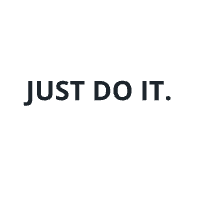Read next
If another registered trade mark exists that's too similar to your own, it may stop you from registering your trade mark, or lead to trade mark infringement.
What to consider before applying
We offer 2 search options:
- TM Checker — provides you with more feedback about the likely success of a registered trade mark application.
- Australian Trade Mark Search (ATMS) — allows you to search for registered and pending trade marks.
|
|
Australian Trade Mark Search (ATMS) | |
|---|---|---|
| Recommended for | checking a new idea | Advanced searching |
| Search by text or image upload Compare against existing trade mark logos. | ||
| Free AI-assisted check Automated check of common problems. | ||
| Apply option Convert your search results into an application. | ||
| Advanced search Search by owner names, trade mark numbers and international registration numbers. | ||
| TM Checker | ATMS search |
What we check for in your trade mark
When you apply for a new trade mark our examiners are looking for many different things to help them make a decision to grant you IP rights. This includes checking your legal identity and whether your trade mark classifications are correct.
Similarity and distinctiveness are among some of the many things our examiners are checking when reviewing trade mark applications.
Similarity
These checks involves whether there are already registered trade marks that are similar to yours in Australia.
A trade mark is generally considered too similar (for example, ‘deceptively similar’) to another trade mark if it’s used in relation to the same or similar goods or services and may cause confusion.
Distinctiveness
Examiners will also check your trade mark to see whether other traders may have a legitimate desire to use it (for instance, because it is descriptive). This includes looking at whether for example ‘4x4’ for vehicles is a non-distinctive trade mark.
Comparing with existing trade marks
You want to ensure that there isn't already an existing trade mark that's too similar to yours, and that your trade mark is distinctive.
The following example shows how an application that shares similar traits to existing trademarks may be rejected by examiners. For each application our examiners are looking at whether there is a real tangible danger of confusion between existing trade marks and your trade mark.
In the following example, we show how a hypothetical application may be too similar to an existing brand, in this case, issues that can arise include similarity of brand names, logo devices or additional slogans.

Logo
Nike swoosh

Tag line
Nike trade mark
Examples of a trade mark being too similar



TM Checker is a free app that helps you decide if your trade mark is likely to face problems when it is examined. It uses AI to quickly check your proposed trade mark based on internally trained data and examinations conducted by us. You don’t need an online services account to use TM Checker, only if you decide to apply for a trade mark.
Australia Trade Mark Search contains details of registered and pending trade marks. It will help you understand what's registered as a trade mark, and its classes of goods and services.
You can search by:
- Word
- Phrase
- Image
- Owner
- Goods and services.
There are two ways you can search:
- Quick search — a general search that allows you to look for trade mark words, owner names, trade mark numbers and international registration numbers. You can also upload an image for an image comparison search.
- Advanced search — a detailed search that allows you to input complex search queries. This type of search is best suited to those who are experienced in searching for trade marks.
Need help? The Australian Trade Mark Search help centre details how to use the quick search function.
If you're looking to take your trade mark to another country, you'll need to check if it already exists there.
Consider seeking professional advice
Launching a new brand can involve a significant investment of time and money. To give you more certainty that the trade mark you've chosen is available and is likely to be registrable, you may wish to seek professional advice.
An experienced trade mark professional such as a trade marks attorney or lawyer, can undertake comprehensive searches for prior registered or unregistered trade marks that might pose a risk. They can also provide advice on ways that any risks might be overcome or reduced.

